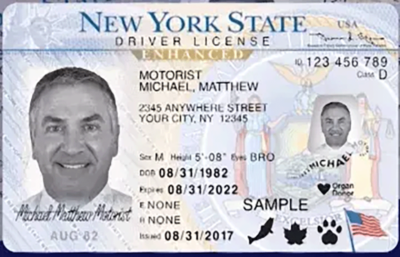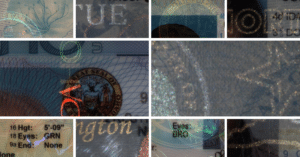Overview of New York ID scanning laws
New York has 8 laws which we consider relevant to ID verification, in addition to other laws which may related to age verification, identity verification, KYC, privacy, and biometrics.
Can you scan IDs in New York?
Yes. There are no laws prohibiting or regulating the electronic scanning of an ID in New York.
Can you save data from a scanned ID in New York?
Yes, but there are restrictions when scanning IDs for alcohol or tobacco sales. For these sales, businesses can only keep records of a customer’s name, date of birth, ID number, and expiration date.
Does New York offer affirmative defense for ID scanning?
Yes. New York offers affirmative defense laws for ID scanning for alcohol sales and tobacco sales.
What types of IDs does New York issue?
New York issues drivers licenses and state IDs, including REAL ID. New York also has a mobile drivers license (mDL) that is available for Apple and Google Wallets.
Individual New York ID verification laws
Age verification for alcohol sales
New York limits the amount of information that can be stored from an ID scan for alcohol sales to name, date of birth, ID number, and expiration date.
Age verification for tobacco sales
New York limits the amount of information that can be stored from an ID scan for tobacco product sales to name, date of birth, ID number, and expiration date.
Affirmative defense for tobacco sales
New York provides an affirmative defense for tobacco sales to a minor if the ID was scanned. Effective 2016.
Age verification for social media in New York
This law will prohibit social media platforms from providing “addictive” social media feeds to minors and from sending notifications between midnight and 6 AM without parental consent.
Records for scrap metal sales
Scrap metal buyers must keep records including the seller’s ID information: name, age, address, and ID number, as well as a copy of the ID. ID parsing can ensure these records are accurate and efficient.
Age verification for diet pills
New York requires that businesses check ID to ensure purchasers are at least 18 years old, but does not require electronic scanning or verification for over-the-counter diet pills and dietary supplement sales.
Prohibiting ID scanning
This bill would prohibit ID scanning, except for certain purposes, such as verifying age when providing age-restricted goods or services.
Age verification for pornography websites
This bill would require pornography websites implement age verification to ensure minors cannot access the content.
Age verification for Kratom
This bill would require that New York businesses check IDs to ensure any purchaser of any products containing Kratom is at least 21 years old.
Data privacy and biometrics laws in New York
There are several laws in New York regarding data privacy and biometrics.
The SHIELD Act requires that companies provide notice if they experience a security breach that compromises consumer information. Businesses also much implement and maintain safeguards to protect consumers’ personal information and data.
The New York Personal Privacy Protection Law (PPPL) regulates the personal information collected and maintained by state agencies.
The New York Privacy Act has been proposed to require companies conducting business in New York to give consumers notice when collecting data, the ability to opt-out, as well as the ability to access, correct, and delete their data.
New York City has one of the broadest bans on facial recognition in the country. Businesses who use facial recognition for any purpose are required to post clear signage near customer entrances that informs customers that their biometric data may be used. Financial institutions, government agencies, and law enforcement are the only entities exempt from this law.



